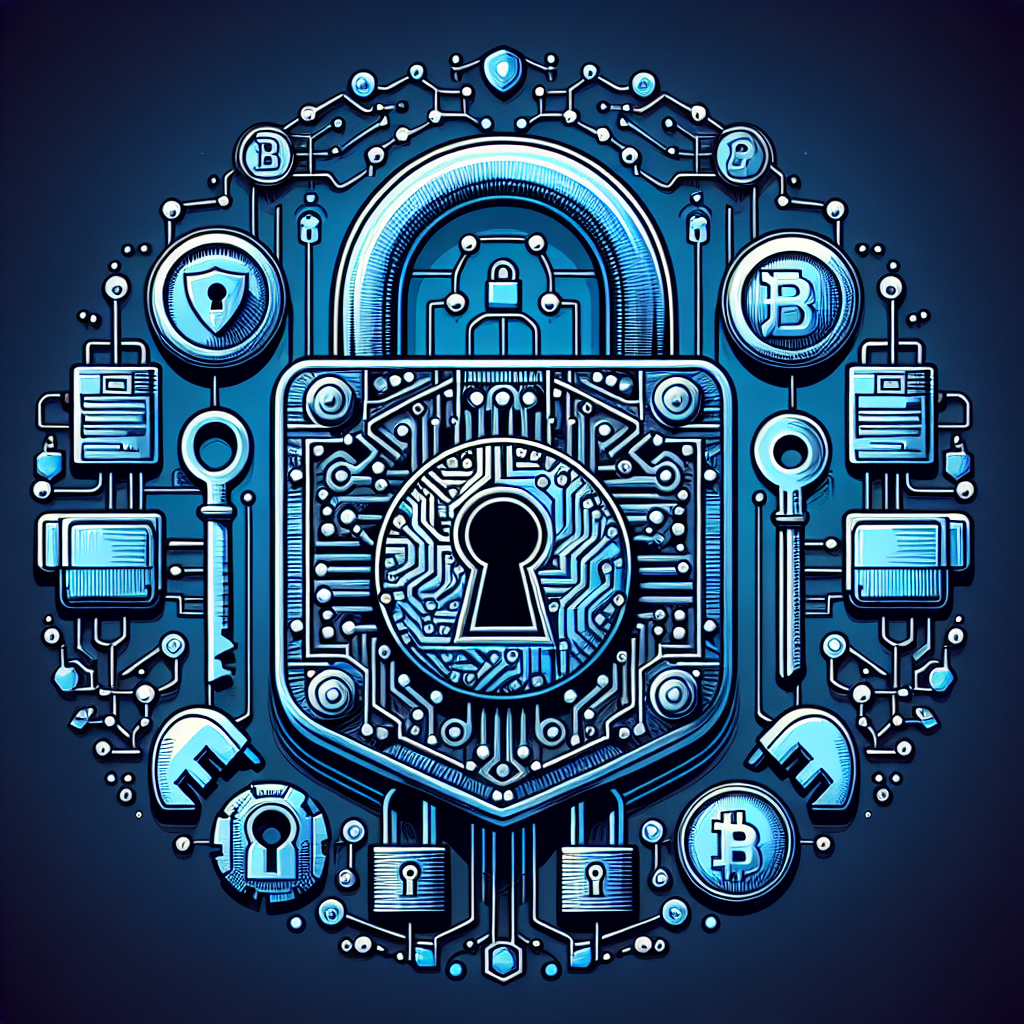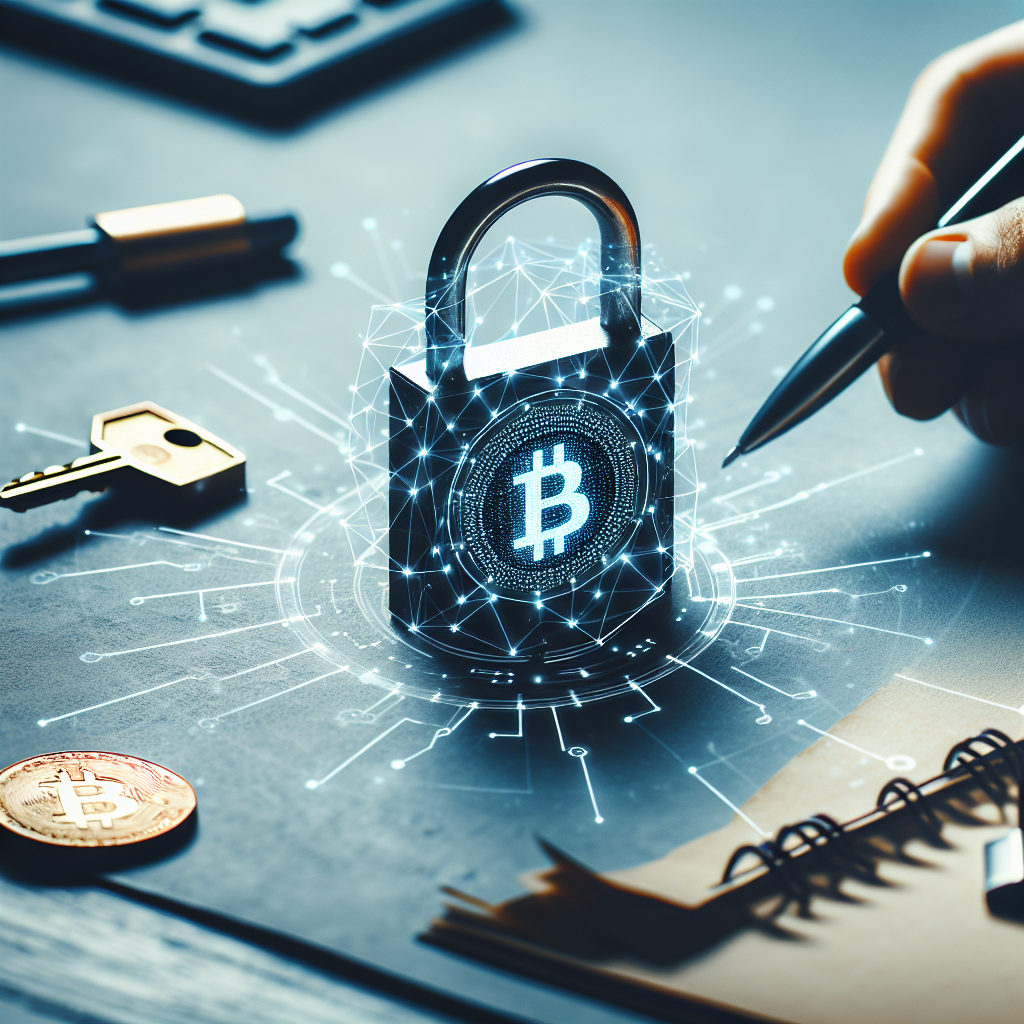Imagine a world where verifying your identity is seamless, secure, and hassle-free. Gone are the days of endless paperwork and tedious processes. With the advent of blockchain technology, identity verification services have been revolutionized. Blockchain provides a decentralized and immutable platform that ensures trustworthiness and transparency in validating personal identities. Through this transformative technology, individuals can confidently assert their digital identities, making fraud and identity theft a thing of the past. Say goodbye to the maze of paperwork and say hello to a future where your identity is easily and securely verified.
Overview of Identity Verification Services Using Blockchain
In today’s digital world, identity verification plays a crucial role in ensuring security and trust. With the growing concern over identity theft and fraud, traditional identity verification systems have proven to be ineffective and vulnerable to attacks. However, with the advent of blockchain technology, a new era of identity verification services has emerged. Blockchain offers a decentralized and secure approach to identity verification, revolutionizing the way we prove our identities online. In this article, we will provide an in-depth overview of identity verification services using blockchain, exploring its benefits, key components, challenges, and current applications.
1. Introduction to Blockchain Technology
1.1 What is Blockchain?
Blockchain, in simple terms, is a decentralized and distributed digital ledger that records transactions across multiple computers, ensuring transparency and immutability. Unlike traditional centralized systems, where a single entity controls and maintains the data, blockchain allows participants to validate and approve transactions through consensus mechanisms.
1.2 How Does Blockchain Work?
Blockchain operates through a network of interconnected nodes, known as miners or validators, who collectively maintain and verify the transactions. Each transaction is bundled into a block and added to the chain in a linear and chronological order. These blocks are linked through cryptographic hashes, creating a secure and tamper-proof record of all transactions.
1.3 Benefits of Blockchain Technology
Blockchain technology offers several benefits that make it an ideal solution for identity verification services. Firstly, its decentralized nature eliminates the need for a central authority, reducing the risk of data breaches and unauthorized access. Additionally, blockchain’s transparency and immutability ensure that the identity verification process is secure, tamper-proof, and resistant to fraud. Finally, blockchain enhances privacy by allowing users to have more control over their identities and choose what information to share.

2. Importance of Identity Verification
Identity verification is a critical aspect of various online services, including financial transactions, healthcare systems, government services, and more. It ensures that individuals are who they claim to be, preventing identity theft, fraud, and impersonation. By establishing trust and authenticity, identity verification protects both businesses and individuals from potential harm and financial losses. However, traditional identity verification systems have their limitations, leading to the need for more robust and secure solutions.
3. Traditional Identity Verification Systems
3.1 Centralized Identity Verification Systems
Traditional identity verification systems rely on centralized entities, such as governments or financial institutions, to verify and validate identities. These systems store personal and sensitive information in centralized databases, making them highly vulnerable to data breaches and unauthorized access. Moreover, the lack of interoperability between different systems often results in a fragmented and inefficient verification process.
3.2 Challenges and Risks Associated with Traditional Systems
Traditional identity verification systems face several challenges and risks that undermine their effectiveness. One major concern is the high likelihood of data breaches, as centralized databases become attractive targets for hackers. Additionally, the reliance on manual verification processes can be time-consuming, costly, and prone to human errors. Furthermore, traditional systems often require individuals to share excessive amounts of personal information, compromising their privacy and increasing the risk of identity theft.

4. Understanding Blockchain-based Identity Verification
4.1 The Role of Blockchain in Identity Verification
Blockchain technology offers a promising solution to the challenges faced by traditional identity verification systems. By leveraging blockchain’s decentralized and transparent nature, identity verification can be performed securely and efficiently. Blockchain provides a tamper-proof and immutable record of identity-related transactions, allowing participants to verify identities without relying on a central authority.
4.2 Decentralization and Security
The decentralized architecture of blockchain ensures that identity verification data is not stored in a single location, reducing the risk of data breaches. With blockchain, verification data is distributed across multiple nodes, making it extremely difficult for attackers to compromise the system. Moreover, blockchain’s cryptographic technology ensures that the data remains secure and tamper-proof, enhancing the overall security of the identity verification process.
4.3 Smart Contracts in Identity Verification
One key feature of blockchain is the ability to execute smart contracts, which are self-executing contracts with predefined rules and conditions. Smart contracts can be used in the identity verification process to automate and streamline the verification procedures. For example, a smart contract can be designed to verify an individual’s identity based on specific criteria, eliminating the need for manual intervention and reducing the risk of errors.
5. Key Components of Blockchain-based Identity Verification
5.1 Digital Identities
In a blockchain-based identity verification system, digital identities are created for individuals, enabling them to prove their identities online securely. These digital identities can be either self-sovereign or issued by trusted entities. Self-sovereign identities put individuals in control of their personal information, allowing them to choose what information to share and with whom. On the other hand, trusted entities, such as governments or financial institutions, can issue digital identities based on their verification processes.
5.2 Consensus Mechanisms
Consensus mechanisms are the protocols used in blockchain networks to achieve agreement among the participants on the validity of transactions. In the context of identity verification, consensus mechanisms ensure that multiple nodes validate and agree on an individual’s identity, reducing the risk of fraudulent identities and ensuring accuracy.
5.3 Identity Verification Algorithms
Identity verification algorithms are the underlying algorithms and protocols used to verify and validate an individual’s identity. These algorithms can range from biometric verification, such as fingerprint or facial recognition, to document verification, such as verifying a passport or driver’s license. The combination of different identity verification algorithms enhances the accuracy and reliability of the verification process.

6. Benefits of Using Blockchain for Identity Verification
6.1 Enhanced Security and Privacy
Blockchain technology offers enhanced security and privacy in identity verification. The decentralized and tamper-proof nature of blockchain ensures that personal information is well-protected and difficult to manipulate. Moreover, blockchain allows individuals to have greater control over their identities, choosing what information to share and with whom, thereby safeguarding their privacy.
6.2 Immutable and Tamper-Proof Records
With blockchain, all identity-related transactions are recorded in an immutable and tamper-proof manner. Once a transaction is verified and added to the blockchain, it becomes practically impossible to alter or delete the information. This permanence provides a reliable and auditable trail of identity verification, preventing any potential disputes or manipulation.
6.3 Streamlined and Efficient Processes
Blockchain simplifies and streamlines the identity verification process by eliminating the need for intermediaries and manual intervention. The use of smart contracts automates the verification procedures, reducing the time and costs associated with traditional verification systems. This efficiency improves user experience and enables businesses to onboard new customers quickly.
7. Challenges and Limitations of Blockchain-based Identity Verification
7.1 Scalability and Performance Issues
One of the major challenges in implementing blockchain-based identity verification systems is scalability and performance. As blockchain networks grow in size and the number of transactions increases, the network can become slower and less efficient. Solving the scalability issue while maintaining the security and integrity of the system remains a significant challenge.
7.2 Adoption and Integration Challenges
The widespread adoption and integration of blockchain-based identity verification systems also pose challenges. Multiple stakeholders, including governments, businesses, and individuals, need to embrace and support the use of blockchain in identity verification. Additionally, integrating blockchain with existing systems and applications can be complex and require significant resources.
7.3 Legal and Regulatory Concerns
The legal and regulatory landscape surrounding blockchain-based identity verification is still evolving. Different jurisdictions may have varying rules and regulations regarding the use of blockchain and the storage of personal information. It is crucial to address these legal and regulatory concerns to ensure compliance and build trust among users.

8. Current Applications of Blockchain-based Identity Verification
8.1 Financial Services
One of the most prominent applications of blockchain-based identity verification is in the financial services sector. With blockchain, financial institutions can verify the identities of customers more efficiently and securely, reducing the risk of fraud and identity theft. Blockchain-based identity verification also facilitates Know Your Customer (KYC) processes, making customer onboarding streamlined and convenient.
8.2 Healthcare
In the healthcare industry, blockchain-based identity verification can enhance patient data security and interoperability. By utilizing blockchain, patients can have greater control over their medical records and grant access to healthcare providers securely. This decentralized approach ensures the accuracy and privacy of patient information, improving the overall quality of healthcare services.
8.3 Government Services
Blockchain-based identity verification has the potential to transform government services by ensuring secure and transparent interactions between citizens and government agencies. It can streamline the process of issuing official documents, such as passports or driver’s licenses, and enable secure online voting. Blockchain technology can also help combat identity fraud and improve the efficiency of government benefit programs.
10. Conclusion
In conclusion, blockchain-based identity verification services offer a secure, efficient, and privacy-enhancing solution to the limitations of traditional systems. By utilizing decentralized networks, consensus mechanisms, and identity verification algorithms, blockchain enables individuals to prove their identities online with greater security and control. Although there are challenges and limitations to overcome, the widespread adoption of blockchain-based identity verification has the potential to revolutionize various industries, including finance, healthcare, and government services. As technology continues to evolve, it is crucial for stakeholders to embrace and explore the possibilities that blockchain presents in the realm of identity verification.


